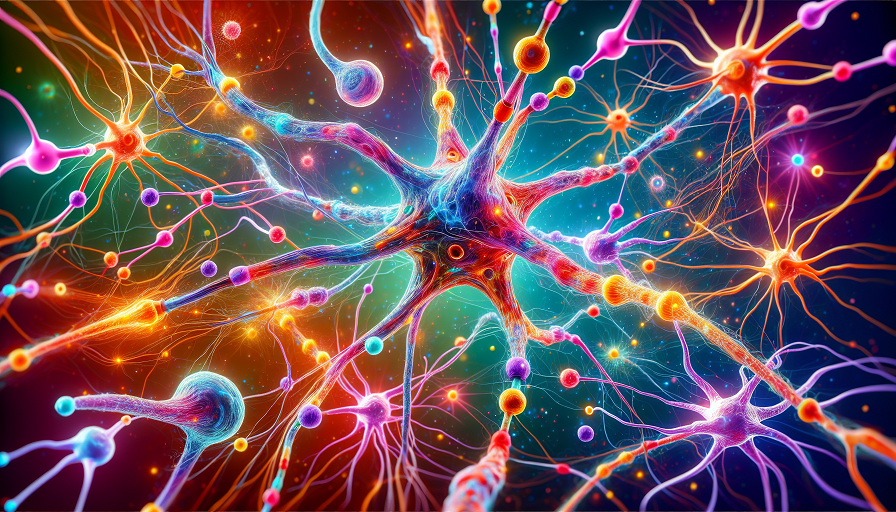
Resilience is often described as the ability to adapt and recover in the face of adversity, stress, or trauma. While this quality is sometimes attributed to personality or upbringing, there’s a fascinating biological foundation to resilience rooted in the brain. Neurons — the brain’s communication cells — play a central role in how we process stress, adapt to challenges, and ultimately bounce back. Here we look at the neurobiology of resilience, shedding light on how neural mechanisms influence our ability to cope and thrive, and how we can strengthen these processes to enhance mental well-being.
Contents
What Is Resilience?
Resilience is not about avoiding stress or difficulty; instead, it’s the capacity to navigate and recover from life’s challenges while maintaining emotional balance and psychological health. Resilience involves a complex interplay of biological, psychological, and environmental factors, with the brain serving as the command center for adaptive responses.
In the context of neurobiology, resilience reflects the brain’s ability to adapt to stressors, regulate emotions, and reorganize neural connections in ways that support recovery and growth. This adaptability is largely driven by neuroplasticity, the brain’s ability to rewire itself in response to experience.
The Role of Neurons in Resilience
Neurons form the foundation of resilience by transmitting signals that regulate our responses to stress and adversity. These signals shape how we perceive, react to, and recover from difficult situations. Key neural processes and brain regions involved in resilience include:
The Prefrontal Cortex: Executive Control
The prefrontal cortex (PFC) is responsible for executive functions such as decision-making, impulse control, and emotion regulation. During stress, the PFC helps us evaluate situations, weigh options, and respond thoughtfully rather than impulsively.
In resilient individuals, the PFC maintains strong connections with other brain regions, enabling effective regulation of stress responses. Conversely, chronic stress can weaken these connections, impairing resilience.
The Amygdala: Processing Threats
The amygdala, a small almond-shaped structure in the brain, plays a key role in detecting and responding to threats. When activated by stress, it triggers the fight-or-flight response, preparing the body to act.
In resilient individuals, the PFC helps regulate amygdala activity, preventing overreaction to stressors. This balance allows for appropriate responses without becoming overwhelmed.
The Hippocampus: Memory and Adaptation
The hippocampus, a critical structure for memory and learning, helps contextualize stress and process experiences. It also regulates cortisol, a stress hormone. A healthy hippocampus is associated with better stress management and emotional regulation.
Chronic stress, however, can shrink the hippocampus, impairing its function and contributing to difficulties in adapting to adversity.
Neurotransmitters and Resilience
Neurotransmitters are chemical messengers that facilitate communication between neurons. Several neurotransmitters play a role in resilience:
- Serotonin: Regulates mood and emotional stability, supporting positive coping strategies.
- Dopamine: Involved in motivation and reward, encouraging persistence and optimism in the face of challenges.
- Norepinephrine: Enhances focus and alertness during stress, helping the brain prioritize adaptive responses.
Neuroplasticity: The Brain’s Key to Resilience
Resilience is deeply connected to neuroplasticity, the brain’s ability to reorganize itself by forming new neural connections. Neuroplasticity enables the brain to adapt to changing circumstances, learn from experiences, and recover from setbacks.
Strengthening Neural Pathways
Repeated experiences and behaviors shape neural pathways in the brain. Positive coping mechanisms, such as problem-solving and seeking social support, reinforce pathways that promote resilience.
Pruning and Growth
During periods of stress, the brain can “prune” less-used connections and strengthen those that are more active. This adaptability helps the brain allocate resources to areas critical for managing adversity.
Role of Brain-Derived Neurotrophic Factor (BDNF)
BDNF is a protein that supports the growth and survival of neurons. Higher levels of BDNF are associated with greater neuroplasticity and resilience. Physical exercise, mindfulness, and learning new skills can boost BDNF levels, enhancing the brain’s adaptability.
How Chronic Stress Affects Resilience
Chronic stress can weaken the neural mechanisms that support resilience. Prolonged exposure to stress hormones, particularly cortisol, can:
- Damage Neurons: High cortisol levels can harm neurons in the hippocampus, reducing memory and emotional regulation.
- Weaken Neural Connections: Chronic stress disrupts communication between the PFC and amygdala, impairing the brain’s ability to manage stress effectively.
- Reduce Neurogenesis: Stress suppresses the growth of new neurons, limiting the brain’s capacity for adaptation and recovery.
Building Resilience: Strategies to Support Neural Health
Resilience is not a fixed trait; it can be cultivated and strengthened through intentional practices that support neural health. Here are evidence-based strategies to enhance resilience:
Practice Mindfulness and Meditation
Mindfulness strengthens the PFC, enhances emotional regulation, and reduces amygdala activity. Regular meditation promotes neuroplasticity and helps the brain adapt to stress.
Engage in Physical Exercise
Exercise boosts BDNF levels, promotes neurogenesis, and improves mood by increasing serotonin and dopamine activity. Activities like running, yoga, or strength training can significantly enhance resilience.
Foster Social Connections
Positive social interactions activate neural pathways associated with reward and emotional support. Building a strong support network provides a buffer against stress and enhances resilience.
Get Adequate Sleep
Sleep is essential for neural repair and emotional regulation. Consistent, quality sleep helps the brain recover from stress and maintain cognitive flexibility.
Challenge Yourself
Learning new skills, setting goals, and embracing challenges encourage neuroplasticity and reinforce the brain’s capacity to adapt. These experiences build confidence and resilience.
Resilience and the Adaptive Power of Neurons
Resilience is a dynamic process shaped by the brain’s ability to adapt and reorganize in response to adversity. Neurons, with their remarkable capacity for communication and plasticity, are at the heart of this process. By understanding the neurobiology of resilience, we can take proactive steps to strengthen our brains, enhance our ability to cope, and thrive in the face of challenges.
The good news is that resilience is not an innate gift reserved for a few; it is a skill that anyone can cultivate. By supporting neural health through mindfulness, exercise, social connections, and lifelong learning, you can unlock your brain’s potential for adaptability and growth, helping you bounce back stronger from whatever life throws your way.

